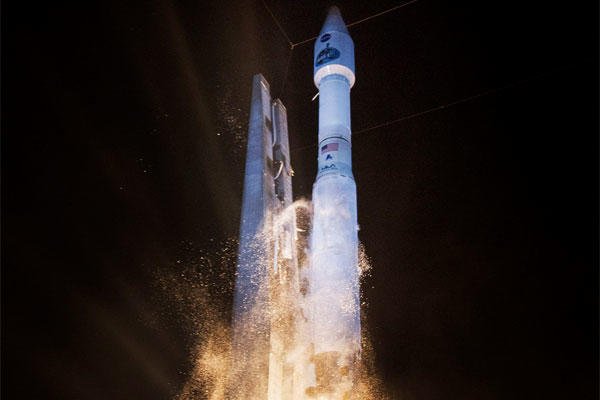CAPE CANAVERAL AIR FORCE STATION, Fla. -- The 45th Space Wing provided flawless Eastern Range support for NASA's successful launch of the Tracking and Data Relay Satellite-L mission aboard a United Launch Alliance Atlas V rocket from Launch Complex 41 here at 9:33 p.m. Jan. 23.
The rocket flew in the 401 vehicle configuration with a four-meter fairing, no solid rocket boosters and a single-engine Centaur upper stage.
Airmen, Air Force civilians and contractors from throughout the 45th Space Wing provided vital support, including weather forecasts, launch and range operations, security, safety, medical and public affairs. The wing also provided its vast network of radar, telemetry, and communications instrumentation to facilitate a safe launch on the Eastern Range.
The Atlas 5 rocket will carry the spacecraft on a two-hour flight to geosynchronous transfer orbit, the normal drop-off point for communications satellites. From there, TDRS-L will maneuver itself into a circular orbit and undergo months of testing before being declared operational.
"What an outstanding performance by an outstanding team," said Brig. Gen. Nina Armagno, the commander of the 45th Space Wing, who also served as the launch decision authority for the 45th Space Wing's second launch of 2014.
On Jan. 6, the 45th Space Wing Sharks supported a SpaceX launch of the Thaicom 6 communications satellite from Space Launch Complex 40 here.
The TDRS-L spacecraft is the second of three new satellites designed to ensure vital operational continuity for NASA by expanding the lifespan of the fleet, which consists of eight satellites in geosynchronous orbit.
The spacecraft provide tracking, telemetry, command and high bandwidth data return services for numerous science and human exploration missions orbiting Earth. These include NASA's Hubble Space Telescope and the International Space Station. TDRS-L has a high-performance solar panel designed for more spacecraft power to meet the growing S-band communications requirements.




























